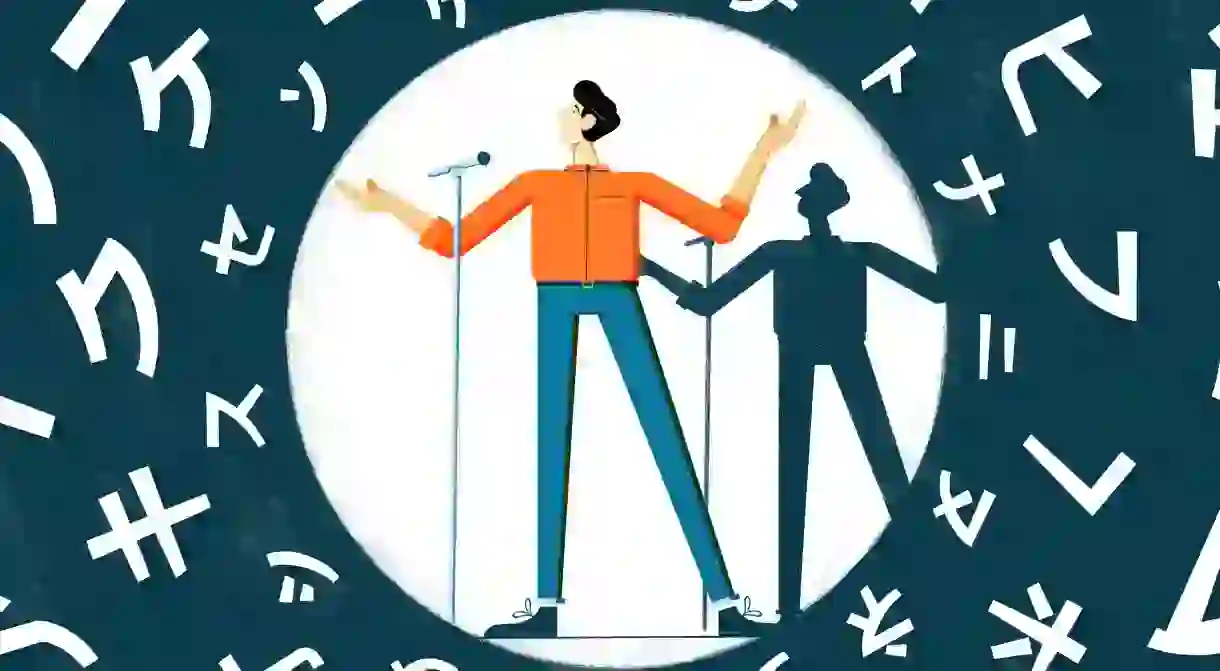10 Slang Words That Are Unique to Osaka

Osakans have a unique dialect that, much like the city itself, is friendly and charming, yet is sometimes considered informal and rough. Called Osaka-ben, this accent is often subject to friendly teasing (similar to having a strong Brooklyn accent in the US). Osakans are typically more casual and blunt than those from elsewhere in Japan and this comes off in their dialect in hilarious and interesting ways. Here are 10 of the most common local words heard only in Osaka.
Nandeyanen
Usually translated as ‘you’ve got to be kidding me!’, nandeyanen is generally shouted with a rising intonation and playful indignation. This phrase is a staple in the famous Osaka comedy scene, where slapstick manzai comedians riff off each other in a format similar to stand-up. However, it is also used regularly by Osakans in daily life, as it complements their playful and dramatic personalities perfectly.
Maido
Maido is an extremely versatile term. It can act as a greeting, a farewell, and a thank you. This phrase is most commonly used by restaurant and street stall staff addressing customers and conveys a friendly and casual tone. While traditionally said only by men, more women are using the term these days as well.

Meccha
This is a casual and enthusiastic way to say ‘really’ or ‘very.’ Meccha kawaii, for example, means ‘very cute.’ True to the Osaka spirit, most things are meccha something, and the word is usually heavily emphasized if not shouted.
Mokarimakka / Bochi bochi
These two slang words go together to form a common exchange between friends or acquaintances. Mokarimakka is the ‘how’s it going?’ of the equation, which literally translates as, ‘are you making good money?’ The reply, bochi bochi, means ‘so so’ or that everything is moving along neutrally.
Makete
This word evokes the commercial spirit of the city, and translates as, ‘discount, please!’ While bargaining isn’t as common in Japan as it once was, or as it still is in many other Asian countries, it may be possible to use this phrase in places like electronics stores or open markets, especially in second-hand or independent shops.

Nambo
Another useful word for shopping is nambo which simply means, ‘how much?’ Historically a merchant city, Osaka has a lot of region specific phrases to do with trade. This is a useful term to use while shopping, especially because it’s slightly easier to remember than the standard Japanese version, ikura desu ka?
Akan
Akan, which has the same meaning as the standard Japanese word dame, is another very versatile word. Literally, it means ‘not good’ but can be used a whole host of ways. People use it alone or in a sentence to express feelings of dislike, disapproval, or rejection. It can mean anything from ‘no!’ to ‘don’t!’ and is also useful for jokingly berating a close friend or angrily shouting at a chikan (pervert).
Honmani
This word is simply Osakans’ way of saying ‘really?’ after hearing something startling. While it can be used in an ordinary inquisitive tone, true to the boisterous Osaka spirit the word is often exclaimed loudly enough to be heard across a room or train car.
Shirankedo
This is a slang version of the more common Japanese phrase shiranai which means ‘to not know.’ When spoken it means ‘I don’t know’ or more accurately ‘dunno,’ although the meaning could change slightly based on the context (for example, to ‘she doesn’t know’).

Shaa nai
A particularly difficult phrase to translate, the elusiveness of shaa nai goes well with its meaning, which is something along the lines of, ‘it is what it is’ or ‘can’t be helped.’ This phrase can be used in a number of ways – as a pragmatic way to deal with the unexpected, as a disappointed but resolved sigh of defeat, or as a frustrated exclamation to show dissatisfaction.













